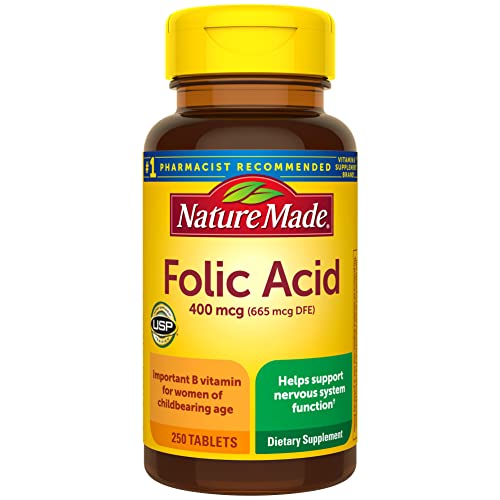Folic Acid & Pregnancy: Study on Supplement Use in Kenya
Quick Summary: A recent study in Kenya looked at how well pregnant women take folic acid supplements. The study found that many women don't take them as recommended, and factors like education and where they live play a big role.
Why Folic Acid Matters During Pregnancy
Folic acid is a B vitamin that's super important for a healthy pregnancy. It helps prevent serious birth defects like spina bifida (problems with the baby's spine and spinal cord). Taking folic acid before and during pregnancy is crucial for the baby's development.
What The Research Found
The study found that only about 44% of pregnant women in Kenya were taking folic acid supplements as they should. Here's what else they learned:
- Education Matters: Women with more education were more likely to take the supplements.
- Where You Live Matters: Women in cities were more likely to take the supplements than those in rural areas.
- Doctor Visits Help: The more times a woman visited her doctor during pregnancy, the more likely she was to take folic acid.
Study Details
- Who was studied: Over 1,500 pregnant women across Kenya.
- How long: The study looked at data from a survey done between September 2022 and March 2023.
- What they took: The study focused on iron and folic acid supplements, which are often given together. The exact dosage wasn't specified, but the Kenyan Ministry of Health recommends daily intake during pregnancy.
What This Means For You
- Talk to Your Doctor: If you're pregnant or planning to become pregnant, talk to your doctor about taking folic acid. They can advise you on the right dosage.
- Follow Doctor's Instructions: Make sure you take your supplements as directed.
- Get Regular Checkups: Attend all your prenatal appointments. Your doctor can help you stay on track with your supplements.
- If you live in a rural area: Ask your doctor about ways to get the supplements.
Study Limitations
- It's a Snapshot: The study looked at one point in time, so it can't prove that one thing causes another.
- People's Memories: The study relied on women remembering if they took the supplements, which can sometimes be tricky.
- Other Factors: The study didn't look at everything that might affect supplement use, like cultural beliefs or if the supplements were available.
Technical Analysis Details
Key Findings
The study found that adherence to iron-folic acid supplementation (IFAS) among pregnant women in Kenya remains suboptimal, with significant disparities linked to socioeconomic, geographic, and healthcare access factors. Key predictors of adherence included higher maternal education, urban residence, and regular antenatal care visits. Multilevel analysis revealed clustering effects at both individual and community levels, underscoring the need for targeted interventions to address these inequities.
Study Design
This cross-sectional analysis utilized data from the 2022 Kenyan Demographic and Health Survey (KDHS), a nationally representative household survey. The sample included 1,533 pregnant women aged 15–49 years across Kenya’s 47 counties. Multilevel logistic regression models were employed to account for hierarchical data structure and clustering effects. Data collection occurred between September 2022 and March 2023, with adherence assessed via self-reported supplement intake during pregnancy.
Dosage & Administration
The study did not specify exact dosages of iron-folic acid supplements, as KDHS data reflects real-world public health programs where dosages may vary. Administration typically follows Kenyan Ministry of Health guidelines, which recommend daily oral intake of iron (30–60 mg) and folic acid (400 mcg) during pregnancy, distributed through antenatal clinics.
Results & Efficacy
Adherence to IFAS was reported at 44.2% (95% CI: 41.5–46.9), with significant variation across regions (p < 0.001). Women with secondary education had 1.8 times higher odds of adherence (aOR: 1.8, 95% CI: 1.3–2.5) compared to those with no education. Urban residence increased adherence odds by 35% (aOR: 1.35, 95% CI: 1.02–1.79). Each additional antenatal visit increased adherence by 12% (aOR: 1.12, 95% CI: 1.08–1.16, p < 0.01). Clustering effects explained 18% of variance at the community level (ICC: 0.18).
Limitations
The cross-sectional design limits causal inferences. Self-reported adherence may introduce recall bias. The study did not assess clinical outcomes (e.g., hemoglobin levels) or supplement quality. Unmeasured confounders (e.g., cultural beliefs, stockouts) were not captured in KDHS datasets. Future research should explore longitudinal adherence patterns and qualitative barriers to uptake.
Clinical Relevance
This study highlights the importance of improving IFAS adherence in Kenya through education and healthcare access. Pregnant women with lower education or in rural areas may benefit from targeted counseling and decentralized supplement distribution. Clinicians should prioritize antenatal visit frequency to reinforce adherence. Public health strategies must address community-level disparities, such as resource allocation and health literacy. Folic acid supplementation remains critical for preventing neural tube defects and maternal anemia, but structural barriers hinder its efficacy in real-world settings.
Analysis based on the provided study summary; full details (e.g., dosages, biochemical markers) may be available in the complete publication.
Original Study Reference
Adherence to iron-folic acid supplementation and its associated factors among pregnant women in Kenya: A multilevel data analysis of the 2022 Kenyan Demographic and Health Survey.
Source: PubMed
Published: 2025-01-01
📄 Read Full Study (PMID: 40748912)




